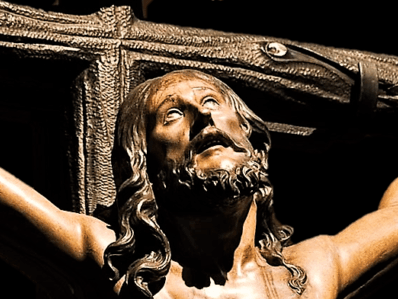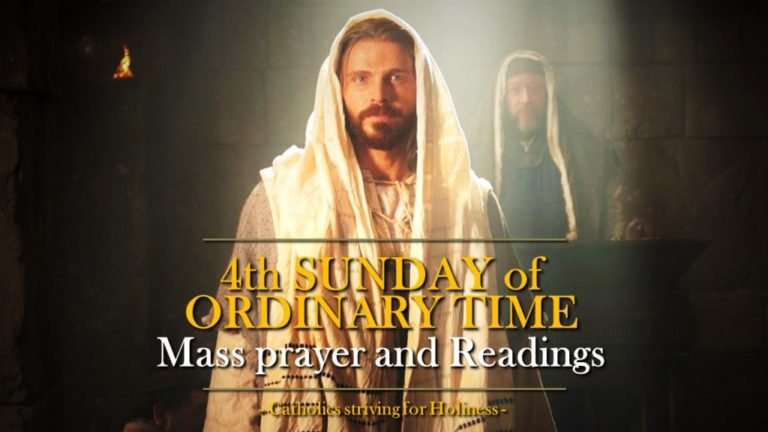POPE FRANCIS ON THE 4TH SUNDAY IN ORDINARY TIME YEAR A.

ANGELUS
Saint Peter’s Square
Sunday, 29 January 2023
_______________________________________
Dear brothers and sisters, buongiorno!
In today’s liturgy, the Beatitudes according to the Gospel of Matthew are proclaimed (cf. Mt 5:1-12). The first is fundamental. This is what it says: “Blessed are the poor in spirit, for theirs is the kingdom of heaven” (v. 3).
Who are the “poor in spirit”? They are the ones who know they cannot rely on themselves, that they are not self-sufficient, and they live as “beggars before God”. They feel their need for God and recognize every good that comes from him as a gift, as a grace. Those who are poor in spirit treasure what they receive. Therefore, they desire that no gift should go to waste. Today, I would like to pause on this typical aspect of the poor in spirit: not to waste. The poor in spirit try not to waste anything. Jesus shows us the importance of not wasting. For example, after the multiplication of the loaves and the fish, he asks that the leftover food be gathered so that nothing would be wasted (cf. Jn 6:12). Not wasting allows us to appreciate the value of ourselves, of people and of things. Unfortunately, however, there is a principle that is often disregarded, above all in more affluent societies where the culture of waste, the throw-away culture is predominant. Both are a plague. So, I would like to propose to you three challenges against the waste mentality, the throw-away mentality.
The first challenge: not to waste the gift that we are. Each one of us is a good, independent of the gifts we have. Every woman, every man, is rich not only in talents, but in dignity. He or she is loved by God, is valuable, is precious. Jesus reminds us that we are blessed not for what we have, but for who we are. And when a person lets go and throws him or herself away, he or she wastes themselves. Let us struggle, with God’s help, against the temptations of believing ourselves inadequate, wrong, and to feel sorry for ourselves.
Then, the second challenge: not to waste the gifts we have. It is a fact that about one-third of total food production goes to waste in the world each year, while so many die of hunger! Nature’s resources cannot be used like this. Goods should be taken care of and shared in such a way that no one lack what is necessary. Rather than waste what we have, let us disseminate an ecology of justice and charity, of sharing!
Lastly, the third challenge: not to throw people away. The throw-away culture says, “I use you in as much as I need you. When I am not interested in you anymore, or you are in my way, I throw you out”. It is especially the weakest who are treated this way – unborn children, the elderly, the needy and the disadvantaged. But people are never to be thrown out, the disadvantaged cannot be through away! Every person is a sacred gift, each person is a unique gift, no matter what their age or condition. Let us always respect and promote life! Let’s not throw life away!
Dear brothers and sisters, let us ask ourselves a question. Above all: How do I live poverty of spirit? Do I know how to make room for God? Do I believe that he is my good, my true and great wealth? Do I believe that he loves me, or do I throw myself away in sadness, forgetting that I am a gift? And then – Am I careful not to waste? Am I responsible about how I use things, goods? Am I willing to share things with other, or am I selfish? Lastly, Do I consider the weakest as precious gifts whom God asks me to care for? Do I remember the poor, those who are deprived of what is necessary?
May Mary, the Woman of the Beatitudes, help us witness the joy that life is a gift and the beauty of making a gift of ourselves.
Source: https://www.vatican.va/content/francesco/en/angelus/2023/documents/20230129-angelus.html
Emphasis mine.

ANGELUS
Saint Peter’s Square
4th Sunday in Ordinary Time Year A, 29 January 2017
The Beatitudes
Dear Brothers and Sisters, Good morning!
This Sunday’s liturgy leads us to meditate on the Beatitudes (cf. Mt 5:1-12) which open up the great so-called Sermon on the Mount, the “Magna Carta” of the New Testament. Jesus manifests God’s desire to lead men to happiness. This message was already present in the preaching of the prophets: God is close to the poor and the oppressed, and delivers them from those who mistreat them. But in this preaching of his, Jesus follows a particular path: he starts with the word “blessed”, that is, happy. He continues with the indication of the condition to be so; and he concludes by making a promise. The cause of blessedness, that is, of happiness, lies not in the requisite condition — for example, “poor in spirit”, “mourning”, “hungry for righteousness”, “persecuted” — but in the subsequent promise, to be welcomed with faith as a gift of God. One starts from a condition of hardship in order to open oneself to God’s gift and enter the new world, the “Kingdom” announced by Jesus. This is not an automatic mechanism, but a way of life in following the Lord, through which the reality of hardship and affliction is seen in a new perspective and experienced according to the conversion that comes about. One is not blessed if one is not converted, capable of appreciating and living God’s gifts.
I pause on the first Beatitude: “Blessed are the poor in spirit, for theirs is the kingdom of heaven” (v. 3). The poor in spirit is he who has assumed the feelings and attitudes of those poor people who, in their state, do not rebel, but who know how to be humble, meek, open to God’s grace. The happiness of the poor — of the poor in spirit — has a twofold dimension: with regard to riches and with regard to God. With regard to possessions, to material possessions, this poverty in spirit is sobriety: not necessarily sacrifice, but the ability to savour the essence, to share; the ability to renew every day the wonder at the goodness of things, without being weighed down in the obscurity of voracious consumption. The more I have, the more I want; the more I have, the more I want: this is voracious consumption. This kills the soul. Men or women who do this, who have this attitude, ‘the more I have, the more I want’, are not happy and will not attain happiness. With regard to God, it is praising and recognizing that the world is a blessing and that at its origin is the creative love of the Father. But it is also opening to Him, docility to his Lordship: it is He, the Lord, He is the Great One. I am not great because I have so many things! It is He: He who wanted the world for all mankind, and who wanted it so that men and women might be happy.
The poor in spirit is the Christian who does not rely on himself, on material wealth, is not obstinate in his own opinions, but who listens with respect and willingly defers to the decisions of others. If in our communities there were more of the poor in spirit, there would be fewer divisions, disagreements and controversies! Humility, like charity, is an essential virtue for living together in Christian communities. The poor, in this evangelical sense, appear to be those who keep alive the objective of the Kingdom of Heaven, offering a glimpse of it revealed as a seed in the fraternal community which favours sharing over ownership. I would like to emphasize this: to favour sharing over ownership. Always having the heart and hands open (he gestures), not closed (he gestures). When the heart is closed (he gestures), it is a shrunken heart. It doesn’t even know how to love. When the heart is open (he gestures), it is on the path of love.
May the Virgin Mary, model and first fruit of the poor in spirit because she is wholly docile to the Lord’s will, help us to surrender ourselves to God, rich in mercy, so that we may be filled with his gifts, especially the abundance of his forgiveness.
Source: https://www.vatican.va/content/francesco/en/angelus/2017/documents/papa-francesco_angelus_20170129.html
Emphasis mine.
Stay updated: subscribe by email for free TO OUR NEW WEBSITE www.catholicsstrivingforholiness.org (PUT YOUR EMAIL IN THE SUBSCRIBE WIDGET).
We are also in www.fb.com/Catholicsstrivingforholiness. Kindly help more people in their Christian life by liking our page and inviting your family, friends and relatives to do so as well. Thanks in advance and God bless you and your loved ones! Fr. Rolly Arjonillo

